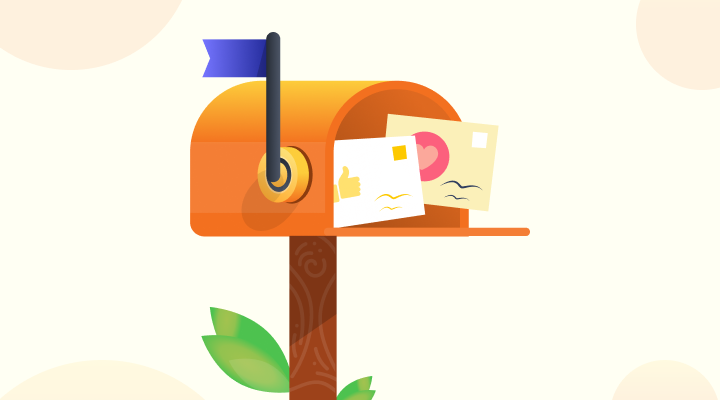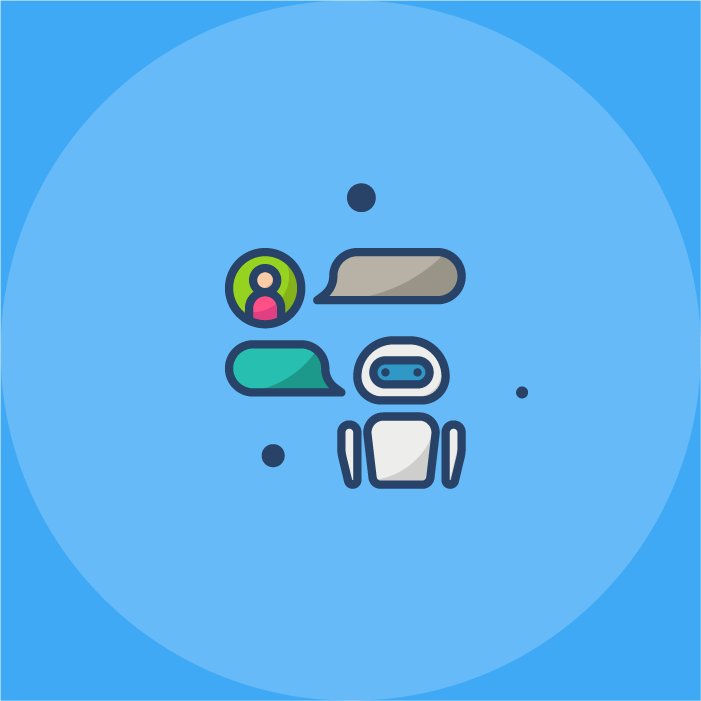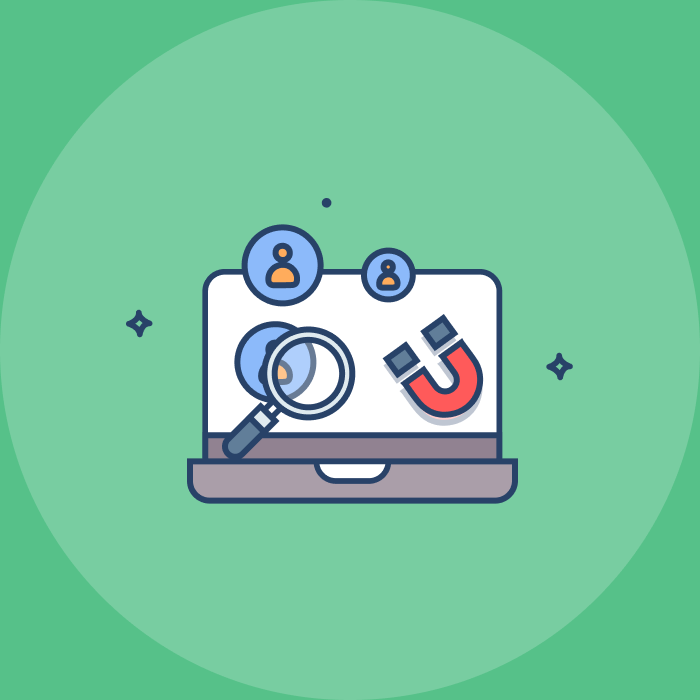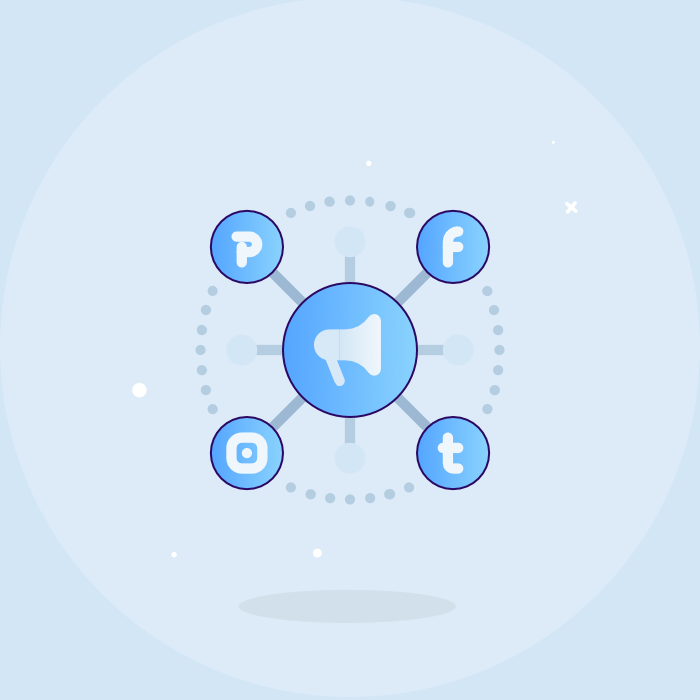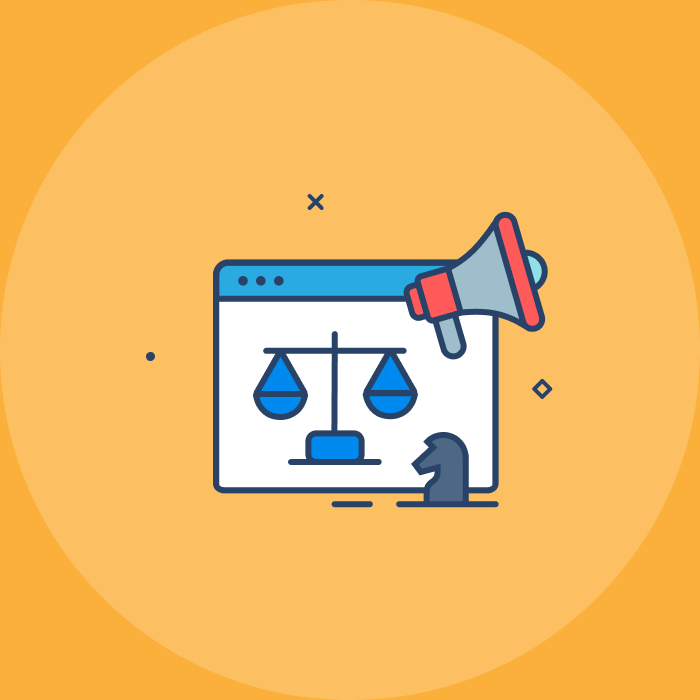An AI powered chatbot is basically an attempt to recreate a human. With advanced natural language processing capabilities, one can rest assured that consumer inquiries will trigger the right bot responses for a seamless conversational experience.
“Hi, there! If you have any questions, ask me. I can help.”
Does this sound familiar to you?
We're sure it does. And in case you were wondering, these are a chatbot's words. So, what is a chatbot?
Chatbots are a kind of program that uses AI, or artificial intelligence, to comprehend and accordingly respond to the written or spoken word. These bots can be coded to reply to particular keywords, preordained dialogues, or nuanced interactions concerning specific issues. Complex chatbots depend upon machine learning, which involves:
- A program that continuously improves itself as it's used.
- Natural language processing, or NLP, helps these bots analyze and understand human-generated text and language.
Chatbots are growing in popularity. In 2018, it was reported that there were more than 300,000 active chatbots on Facebook. Businesses and brands are using chatbots in lots of exciting ways. You can do anything with these bots - from ordering food to getting recommendations to scheduling flights to pretty much everything else.
The Importance of a Chatbot and Reasons to Consider Before Selecting One
Chatbots allow businesses to engage the customer in a personalized interaction automatically. These bots can automate up to 80% of routine support questions and help businesses save 30% of customer support costs.
While still in its early days, the adoption of chatbots is growing rapidly. A report by Outgrow in 2018 predicted that 80% of businesses would integrate a chatbot by the end of this year. Whether organizations like it or not, virtual assistants will be the future of customer support and marketing in general.
However, as expectations from automated customer experience rise, so do the number of chatbots in the market — leaving a lot of brands lost on how to make a chatbot for themselves.
Also, by leveraging Chat GPT's capabilities, developers can build conversational interfaces that can understand and respond to natural language inputs from users.
Depending upon your operations, the chatbots that help you meet your specific requirements while saving you on resources expended on cost and labor will be different. So, if you are lost on how to select the right chatbot for you, here are the things you should look for when doing so:
- Learning: It should accumulate knowledge without the help of any manual teaching. It can imbibe information from some of the knowledge bases, including your CRM data, chat logs, and emails.
- Understanding: The platform you choose should be able to decipher intent and break down sophisticated entities. Intelligent bots are able to interpret complex languages and execute complicated tasks.
- Deploying: The AI chatbot should consist of natural language understanding (NLU) service tools, a dialog manager, and a behavior engine.
- Training: It should be able to learn continuously and get smarter during the course of every conversation through machine learning and semantic modeling.
Top 13 AI-Powered Chatbots to Increase Conversions in 2023
Today, you can find interactive AI chatbots on websites, apps, and online messaging platforms. If you are wondering how to create a powerful chatbot platform for your company, you can find your pick from the list of chatbots below. Several top chatbot platforms in the market today help you create your own bot for you.
Ready to find the best chatbot examples for your apps, website, and other platforms? Let’s dive in.
1. Mitsuku
One of the best chatbot platforms out there, Mitsuku is the current recipient of the Loebner prize, an AI competition where chatbots with the most human-like conversational attributes.
The competition tests bots on the basis of a standard Turing test. One can talk to Mitsuku for hours without seeing a pattern of predefined answers. What makes this bot unique is its ability to perceive your language and sense your mood to reply to your questions accordingly.
Its sophisticated machine-learning design maintains a clear and crisp interaction by relaying novel data to the human manager. It's a bot that can chat about anything, which is what makes it so human-like — unlike other bots that are made to serve one end.
2. Acquire
The Acquire chatbot is an AI program that spurs natural human conversation and works alongside your customer service team, comprehending inquiries, gathering context and answering customer questions without live chat support.
With it, you can import knowledge from existing knowledge bases like FAQs and chat history to supplement your bot's foundation. You can also train the bots by putting them in 'Bot Camp', where they can automatically absorb your internal data to train for customer chats. From here, the bots can then be placed on your website or your app to answer questions and qualify leads.
3. Imperson
If you were wondering how to create a chatbot for your business, this intelligent AI chatbot platform right here is what you were looking for. Imperson creates enterprise chatbots with audio, video, text, AR, and VR capabilities for all major messaging platforms. Their interactive bots provide genuine and engrossing chat experiences.
Imperson's conversation navigator utilizes NLP user intents, deep dialogue context, and relationship memory to lead conversations while the AI moderator aids in achieving customers' goals. It provides a holistic bot solution by hosting and implementing your bot to relay insights generated in real-time to augment its capabilities.
4. Smartloop
With Smartloop, you can develop smart AI-powered chatbots to help you automatically generate quality leads and rear them. Smartloop allows you to have engaging one-on-one conversations with customers and share interesting content to improve your retention rate.
It also helps you scrutinize your bot's performance to see how users interact with it and find loopholes, if any. Depending upon this, you can subsequently work on the chatbot's features to enhance conversational flow over time and improve productivity.
5. Hyro
Hyro's text and voice-based chatbot platform use NLU or natural language understanding to train assistants. This system is continuously made to learn a rich and expansive range of vocabulary, context, and tone to offer an engaging experience to users.
The Hyro chatbot can be deployed on apps, websites, call centers, and even smart speakers. It can be modified to adapt to different use cases depending on their industry, including travel, retail, healthcare, and more.
Hyro ensures the setting up the right configurations according to its users’ needs, providing a zero-effort and seamless plug-and-play experience. It also consists of an out-of-the-box dashboard that provides information about user interactions.
6. Kommunicate
Kommunicate is a customer communication platform that provides businesses with a range of tools for managing customer conversations across multiple channels, including chat, email, and social media. The platform integrates with popular messaging apps like WhatsApp, Facebook Messenger, and Telegram, as well as business email accounts and helpdesk software like Zendesk.
Kommunicate provides businesses with an AI-powered chatbot that can handle routine inquiries and automate repetitive tasks, freeing customer support agents to handle more complex issues. The platform also includes features like automated chat routing, real-time chat translation, and customizable chat widgets that can be embedded in websites and mobile apps.
With Kommunicate, businesses can manage customer conversations from a single dashboard, track customer interactions across different channels, and collaborate with team members to resolve issues more efficiently. The platform also provides analytics and reporting tools to help businesses track and measure the performance of their customer communication strategies.
7. Zendesk
Zendesk is a top-notch chatbot that stands out for its seamless integration with AI-powered chatbots through the Zendesk API. This innovative feature enables businesses to gather essential visitor information and efficiently connect them with the right personnel, optimizing the customer support process.
What sets this chatbot apart is its ability to send targeted and behavior-based messages to customers, providing a personalized and engaging experience. With its advanced AI capabilities, the Zendesk chatbot learns and adapts over time, making each interaction more efficient and tailored to individual needs.
With 24/7 availability and multi-language support, this chatbot is a game-changer for businesses that want to improve their customer service experience.
8. Flow XO
Flow XO lets you create interactive and intelligent chatbots without the need to code anything. With their drag-and-drop editor, enterprises can create logical workflows and embed the chatbot within a software solution.
What sets Flow XO apart is that it can be integrated with several third-party applications. You can develop chatbots integrated with Google Sheets, Salesforce, Twitter, and other services. Their management and hosting features are its greatest aspects and make it one of the best chatbot platforms.
9. Reply.ai
A top chatbot platform in its own right, Reply.ai is a bot-building and management software solution for enterprises. Its capabilities also include B2C communications to enhance customer support and care.
With Reply's visual bot builder, you can develop smart bots for your website. The dashboard for the same comes with an inbuilt CRM with machine learning and real-time insights to help create smarter and quicker bots.
10. Tidio
Tidio is an all-round customer communication solution, combining a live chat, chatbots, a ticketing system, and Tidio AI, a set of AI tools for customer service. Affordable to SMBs, Tidio AI combines several advanced features that allow you to reply to customers within seconds, scrape your FAQ pages, determine intent, connect prompts to a database of replies, and group customer requests by priority.
This set of AI-augmented tools can help you increase conversions, improve efficiency, and boost customer satisfaction. Your support agents can work on high-priority tasks and important clients, while AI chatbots will take care of the rest.
11. Aivo
An enterprise-level and one of the best chatbot platforms in the industry today, Aivo enables your customer support team to reply in real time via voice or text. With its interactive chatbot, you can increase conversions, optimize resources, and take customer service to the next level.
Its AgentBot attunes itself to a channel's regulations channel and replies in an automated manner to provide users with a personalized experience. It can also be integrated with other third-party services like Zapier, Zendesk, Live, Salesforce, and others.
12. MobileMonkey
MobileMonkey is an intelligent AI platform that helps you develop chatbots that can be integrated with Facebook Messenger to take marketing to the next level.
You can use MobileMonkey to direct and run activities like drip campaigns, chat blasts, and list building for lead generation.
It also enables automated customer service by providing the right answers to questions that are asked most frequently to your support team and reduces wait time hugely as a result. You can also countermand your chatbot and assume its place in the conversation at any time.
13. Pandorabots
Pandorabots is one of the largest and oldest chatbot hosting services. A top chatbot platform, Pandorabots, is known for its full turnkey chatbot development solutions.
With Pandorabots, you can develop, host, and integrate conversational chatbots on your app, website, and messaging platforms like Twitter, Line, Slack, Telegram, and KiK. It supports and applies AIML open standards to enable bidirectional communication at scale.
A Few Success Stories
Cases of successful chatbot implementation have been making the rounds in the market. Not too long ago, Burberry, the high-end fashion retail outlet and among the most digitally innovative brands, launched its chatbot during New York Fashion Week in 2016.
Originally meant to give users BTS looks at their collections and let them shop pieces from the show, Burberry went one step further by sending push notifications to those who had recently interacted with the bot, letting them see unique content and convincing them to shop for it.
Another interesting example of successful chatbot implementation is that of Match.com, an online dating service with services in 25 countries.
Match.com came up with the brilliant idea to create Lara, their dating chatbot, by integrating it with Facebook Messenger.
Lara can use its AI in 12 languages to engage in personal conversations with users and ask them dating-related questions while also getting data to inform prospective dating profiles directly in Messenger. As a result of its integration, Match.com saw a 30% increase in registration rates, with the company declaring Lara as "here to stay."
In Conclusion
Apart from the aforementioned chatbots, many other intelligent bots provide an equally smart approach to responding to queries. Since developing a smart chatbot is not a technically heavy task, most of us can do it with basic technical know-how.
The most important thing to remember while developing a chatbot is how interactive it will be. That's why enterprises should pour more effort into designing conversations while creating one. If businesses keep this one thing in mind, they can map functionalities in line with user expectations and provide a better customer experience.
Subscribe to weekly updates
You’ll also receive some of our best posts today
